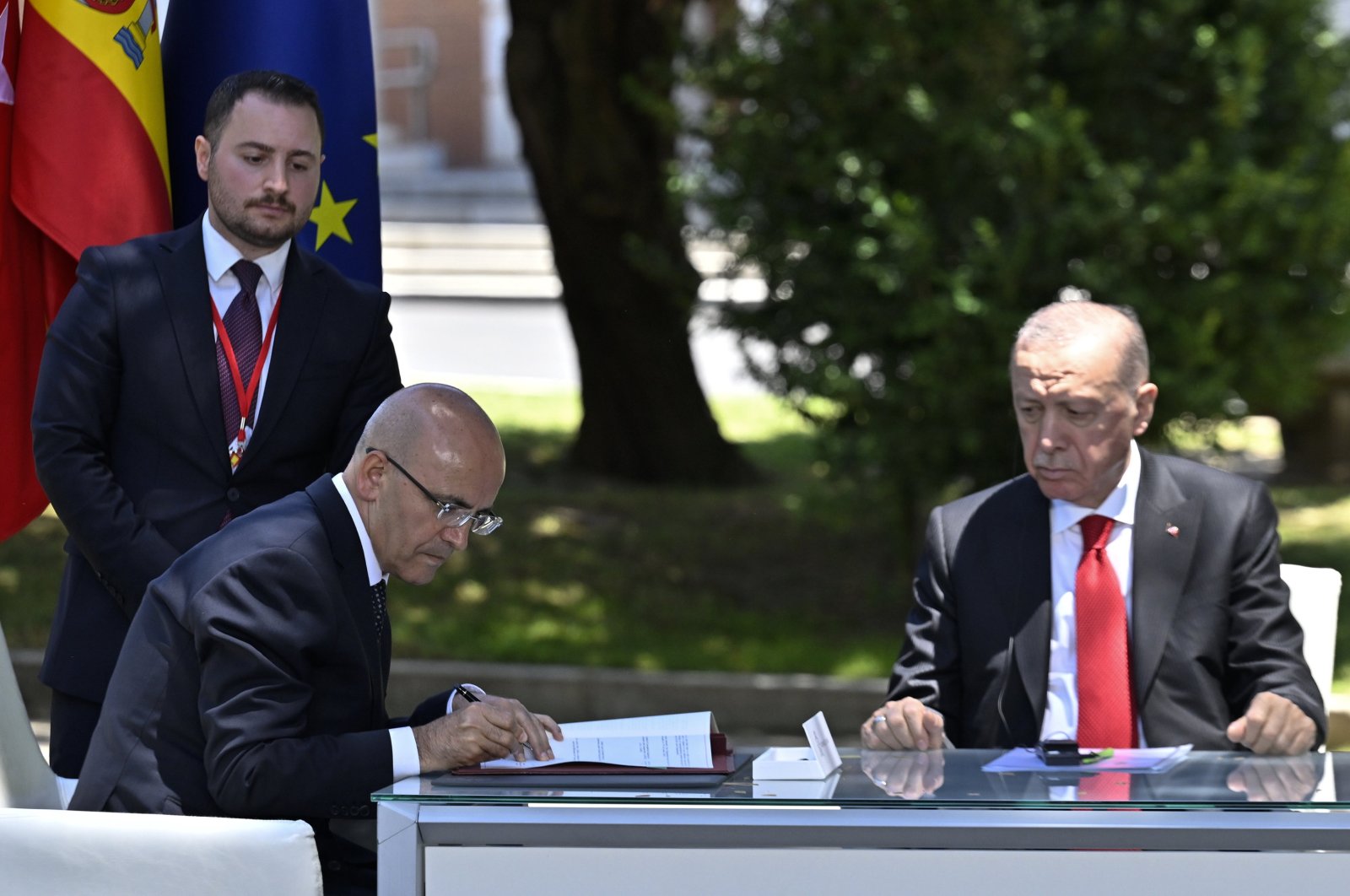Türkiye postpones stock transactions tax plan but major overhaul looms
Türkiye has postponed work on introducing a tax on stock transactions after receiving feedback from relevant parties, but authorities have reportedly drafted new levy proposals aimed mostly at companies, which would mark a major overhaul.
Officials had put forward plans to impose a transaction tax on the purchase and sale of stocks and crypto assets rather than a levy on gains made on the stock market, which was earlier reported but which the government denied.
The government was mulling “a very limited” transaction levy on stock trading, which Vice President Yılmaz said on June 10 could be around 0.01%-0.02%.
But Treasury and Finance Minister Şimşek on Thursday said work on drafting the scheme had been postponed for a while for further re-evaluation without going into further detail on the timing.
“We are postponing the draft tax study for the stock exchange for a while to re-evaluate it in light of feedback from all relevant parties,” he wrote in a message on social media platform X.
However, he said a package of new tax regulations to increase tax efficiency and justice and reduce informality will be submitted to the Turkish Grand National Assembly (TBMM) soon.
That package could mark one of the largest tax overhauls in two decades.
The government is weighing plans that would imply additional revenue of TL 226 billion ($7 billion), equal to about 0.7% of the gross domestic product (GDP), a report by Bloomberg News claimed on Friday.
The report cited a person with direct knowledge of the matter, who asked not to be identified because the matter is private.
It suggested that the new legislation is being prepared for discussion in Parliament toward the end of this month. The ruling Justice and Development Party (AK Party) and its allies hold a majority in the TBMM.
The government is pushing for stronger fiscal discipline and monetary tightening measures mainly to curb stubbornly elevated inflation.
Inflation reached an annual 75% in May, which is said to mark the peak before tight policy and a relatively stable Turkish lira bring relief.
The economy administration, led by Şimşek, reversed years of loose monetary policy after last year’s general and presidential elections and delivered a series of interest rate hikes.
Since June last year, the Central Bank of the Republic of Türkiye (CBRT) has gradually lifted its benchmark policy rate to 50% from 8.5% and has pledged to tighten it more if there is “a significant and persistent deterioration” in the inflation outlook.
Last month, the government unveiled a comprehensive plan to reduce public spending and prioritize efficiency to repair the budget plagued by a sharp increase in spending after last year’s devastating earthquakes that struck the country’s southeastern region.
Türkiye’s budget ran a deficit of about $45.5 billion in 2023, an 864% increase from 2022, mainly due to quake-related spending. Last July, Türkiye raised petrol taxes and value-added taxes (VAT) to boost revenues.
The budget deficit-to-GDP ratio ended last year at 5.2%, below market expectations. This year’s deficit is estimated to come in at 6.4% of GDP, according to the government’s projections.
The new proposals reportedly include a minimum 15% tax on multinational corporations for profits earned in the country, which could generate around TL 40 billion in additional annual income next year.
That would be in line with the landmark agreement reached by approximately 140 countries under the Organization for Economic Co-operation and Development (OECD) in 2021.
The so-called Pillar 2 agreement aimed to halt a downward spiral of competitive corporate tax cuts by countries to attract investment and shift profits to their jurisdictions by multinational firms.
Going live this year, the global minimum aims, in particular, to discourage big multinationals from booking profits in low-tax countries.
The legislative preparations for the new regulation are almost finalized, Şimşek said late last month.
The new plan also includes a new minimum tax base to be applied to Turkish corporations, which could raise about TL 90 billion, the Bloomberg report said.
An additional revenue of some TL 7.2 billion could be raised from real estate investment trusts, which the report suggests will be required to pay a minimum corporate tax on profits made from property sales or rentals.
The Treasury and Finance Ministry also weighs a 0.03% transaction tax on crypto trading. That could generate about TL 3.7 billion a year, the report said.



